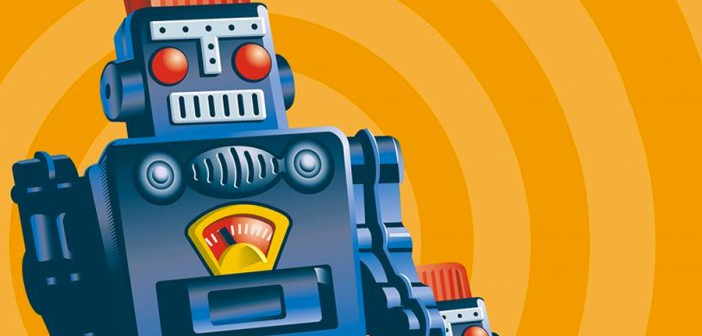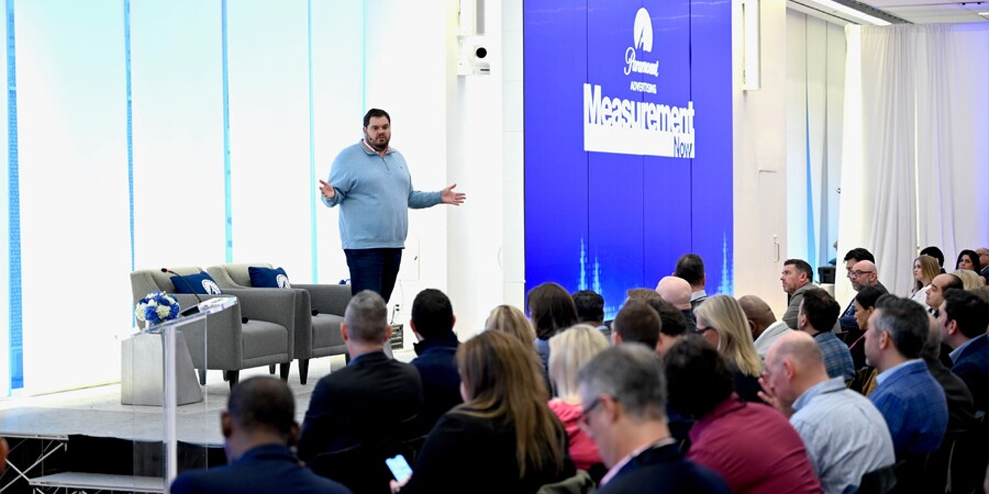Advertising has become so fixated with technology that it no longer remembers how to communicate with real people and has started to menace them instead. Don’t forget the humans, Ian Leslie warns.
Everyone is making predictions about ad-blocking, but I am not going to make any forecast and nor should you. At least not with confidence.
Ten years ago, everyone knew that TV advertising was dead. Digital video recorders meant that ad-skipping was about to become the norm.
Besides, TV ads didn’t offer people a “conversation”, just a one-way shouting match. And they couldn’t quench the insatiable desire of consumers to know more about our products. That’s how we knew interactive TV was about to go big.
Around this time, I worked for a terrestrial TV channel. We would be ushered into darkened rooms to witness demonstrations of the future.
Click on this blue button, and then wait a while, and then click to choose which option you want, and then – wait a minute – OK! Now you can spend five minutes watching a Volvo drive down a winding mountain road. You can watch it from three different angles – take your pick! Press the red button for information on maximum roof load.
Isn’t this wonderful? Why on earth would anyone put up with a boring old 30-second spot after a brand experience like that?
It’s 2016. Last year’s spend on un-interactive TV ads broke the £5 billion barrier in the UK for the first time. And interactive TV feels about as cutting edge as Second Life.
Why didn’t we see this coming? Or, rather, why didn’t we see it not coming?
Simple: we fixated on the technology and forgot about the human.
To make something better, you need to understand what makes it work in the first place. We thought we understood TV ads, but we didn’t, because we hadn’t analysed them in the context of human psychology and human lives (actually, some people had, but they were mostly ignored).
As it turns out, the passive, undemanding nature of traditional ads, whether on TV or in newspapers, isn’t a bug but a feature.
It matches the low importance of brands in our lives. Ads don’t take up much time. They don’t require anyone to think, or make a decision, or do anything. The cost of ignoring them is zero.
And if they’re good, they’re really good.
Forgetting about the human is a perennial problem. Five years ago, everyone knew that advertising that didn’t tailor its message to specific micro-audiences was dead. Google and Facebook’s data meant we could eliminate wasted marketing budget and save everyone the bother of seeing messages that weren’t in-tended for them.
We could also send people real, hard information instead of this terrible flimflam called “brand image” that we had been cynical enough to sell for the past 50 years and consumers had been stupid enough to fall for.
Clever us. Lucky consumers.
What is the reality? A cacophony of flashing, buzzing, tinny-soundtrack-playing annoyances that overloads websites, baffles our brains and makes us scream at our phones in frustration. A mosquito cloud that darkens almost every corner of the internet.
Here’s an ad for a book you’ve already bought. Here’s an ad promising hot Russian girls, even though you’re a middle-aged woman from Cheshire, happily married to a loss adjuster. Here’s an ad that knows just enough about you to be creepy but not enough to be perceptive. Here’s an ad that follows you across the web like a robot stalker.
Here is nothing that makes you laugh, gasp or well up with happiness.
Maybe the flimflam wasn’t so bad, after all.
Here’s the thing about humans. They care about all sorts: food, sex, sport, pets, embroidery, each other. But most of them, most of the time, do not care about brands.
I know: it’s a bitter pill, which is probably why we refuse to swallow it.
But it explains why the dream of “engagement” died. It explains why “relevant information” is usually irrelevant. It explains why any form of advertising that isn’t highly compelling or highly seductive is either going to get blocked out by our mental spam filters or by the digital ones that the internet has – with its characteristic flair for solving problems it created itself – provided us with.
Here’s another thing about humans: they make terrible predictions. If you don’t
believe me, I suggest you Google stories from a year ago about the presidential election or the Premier League, and look for mentions of Donald Trump or Leicester City.
Or just pick up a copy of Campaign from 2005.
So I’ve almost given up on predicting the future. But not quite. I will go so far as to predict this. Unless online advertising changes its form radically in the next five years, humans are going to send it the way of interactive TV.
I like to imagine that, somewhere, that Volvo is still motoring serenely down a mountain road.
This is an adapted version of his address to Newsworks’ Shift 2016 conference this week
This article was first published on campaignlive.co.uk




